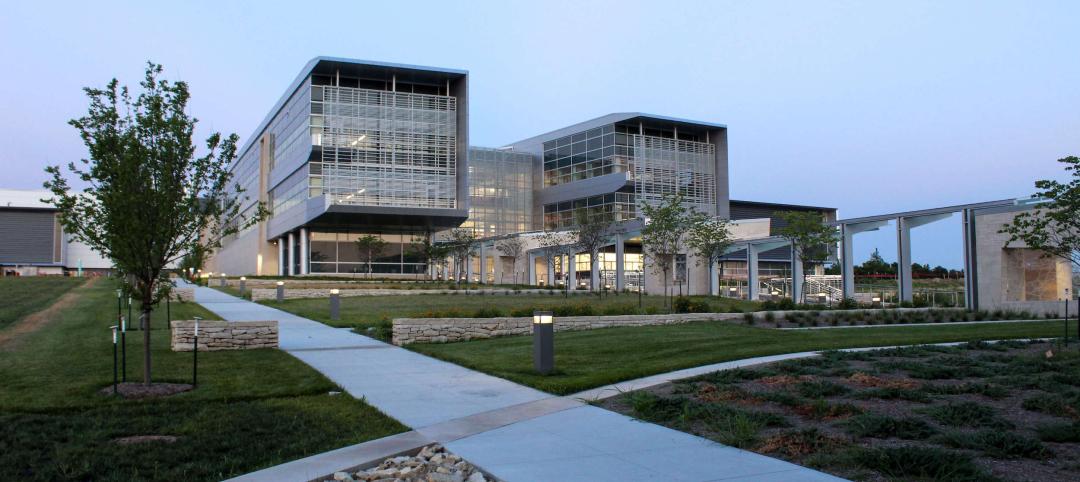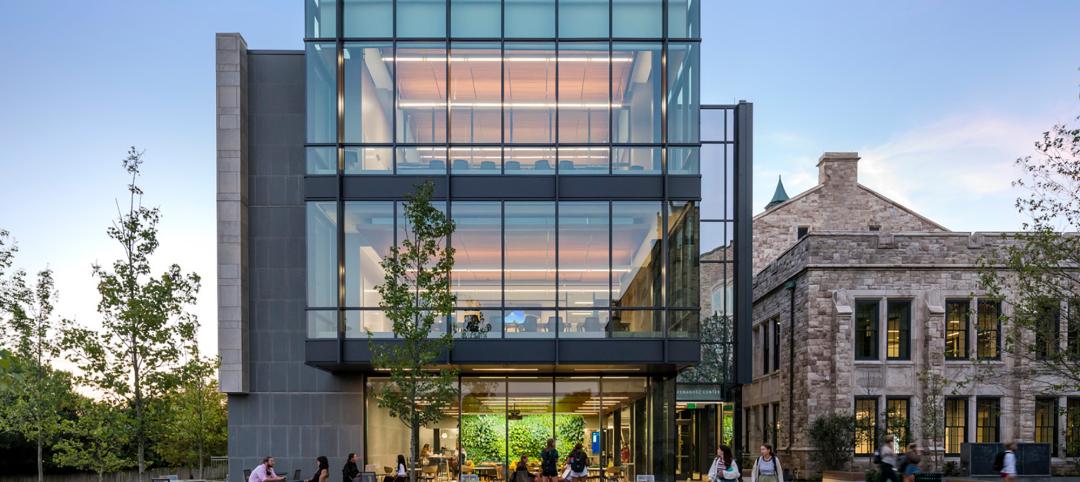3M is playing an important role in the recently announced Better Buildings Challenge, an effort to grow the country's clean energy economy. The initiative aims to improve energy efficiency in commercial buildings by 20% by the year 2020, a move that is projected to reduce energy bills for American businesses by approximately $40 billion per year and to create more than 100,000 jobs.
As a partner in the challenge, 3M has committed to reduce energy use by 25% in 78 of its plants, encompassing nearly 38 million-sf of building space. The company has already achieved significant gains; in 2011 alone, 3M improved energy efficiency in its operations globally by 8.9% compared to the same period last year, and avoided more than $43 million in energy costs. Additionally, more than 150 employee-inspired energy projects helped the company save nearly $7.7 million.
Within 3M, the Renewable Energy Division directs its efforts toward helping customers meet their energy targets by providing energy-saving solutions. 3M Renewable Energy creates products and technologies to advance the solar and wind industries, as well as energy conservation window films for the commercial building sector. These technologies hold significant promise in helping 3M and other participants in the challenge increase energy efficiency. Notable products in 3M's line include:
- Sun Control Window Films, which use non-metalized nano-technology to create reflectivity that's actually lower than glass. These spectrally-selective interior and exterior films reject up to 97 percent of the sun's heat-producing infrared light to help keep buildings cooler.
- Cool Mirror Film 330, a unique, multilayer optical film designed for low concentration, crystalline silicon photovoltaic (low X CPV) installations. The films reflect only the wavelengths of light that can be absorbed by solar cells, substantially reducing the amount of solar energy that can degrade the performance of CPV systems.
"3M has cut its absolute worldwide greenhouse gas emissions by 72 percent from 1990 to 2010," said Tim Thornton, director of 3M Renewable Energy Division's Energy Conservation business. "We are proud to take part in this challenge and to share our knowledge with others, so we can all move toward achieving this ambitious goal." BD+C
Related Stories
Mass Timber | Jul 11, 2023
5 solutions to acoustic issues in mass timber buildings
For all its advantages, mass timber also has a less-heralded quality: its acoustic challenges. Exposed wood ceilings and floors have led to issues with excessive noise. Mass timber experts offer practical solutions to the top five acoustic issues in mass timber buildings.
Multifamily Housing | Jul 11, 2023
Converting downtown office into multifamily residential: Let’s stop and think about this
Is the office-to-residential conversion really what’s best for our downtowns from a cultural, urban, economic perspective? Or is this silver bullet really a poison pill?
Adaptive Reuse | Jul 10, 2023
California updates building code for adaptive reuse of office, retail structures for housing
The California Building Standards Commission recently voted to make it easier to convert commercial properties to residential use. The commission adopted provisions of the International Existing Building Code (IEBC) that allow developers more flexibility for adaptive reuse of retail and office structures.
Laboratories | Jul 10, 2023
U.S. Department of Agriculture opens nation’s first biosafety level 4 containment facility for animal disease research
Replacing a seven-decade-old animal disease center, the National Bio and Agro-Defense Facility includes the nation’s first facility with biosafety containment capable of housing large livestock.
Adaptive Reuse | Jul 6, 2023
The responsibility of adapting historic university buildings
Shepley Bulfinch's David Whitehill, AIA, believes the adaptive reuse of historic university buildings is not a matter of sentimentality but of practicality, progress, and preservation.
Market Data | Jul 5, 2023
Nonresidential construction spending decreased in May, its first drop in nearly a year
National nonresidential construction spending decreased 0.2% in May, according to an Associated Builders and Contractors analysis of data published today by the U.S. Census Bureau. On a seasonally adjusted annualized basis, nonresidential spending totaled $1.06 trillion.
Architects | Jul 5, 2023
Niles Bolton Associates promotes Jeffrey Smith, AIA, to President and C. Cannon Reynolds, AIA, to Managing Director
Niles Bolton Associates (NBA), a leading architecture, planning and design firm, announces leadership changes as a part of its ongoing commitment to future growth. Current Executive Vice President, Jeffrey Smith, AIA, has been named President and C. Cannon Reynolds, AIA, has been named Managing Director effective June 30, 2023.
Mixed-Use | Jun 29, 2023
Massive work-live-play development opens in LA's new Cumulus District
VOX at Cumulus, a 14-acre work-live-play development in Los Angeles, offers 910 housing units and 100,000 sf of retail space anchored by a Whole Foods outlet. VOX, one of the largest mixed-use communities to open in the Los Angeles area, features apartments and townhomes with more than one dozen floorplans.
Office Buildings | Jun 28, 2023
When office-to-residential conversion works
The cost and design challenges involved with office-to-residential conversions can be daunting; designers need to devise creative uses to fully utilize the space.
Architects | Jun 28, 2023
CSHQA hires first CEO in company's 134-year history
The Board of Directors of CSHQA announced the appointment of Ryan D. Martin, AIA NCARB as Chief Executive Officer.

















